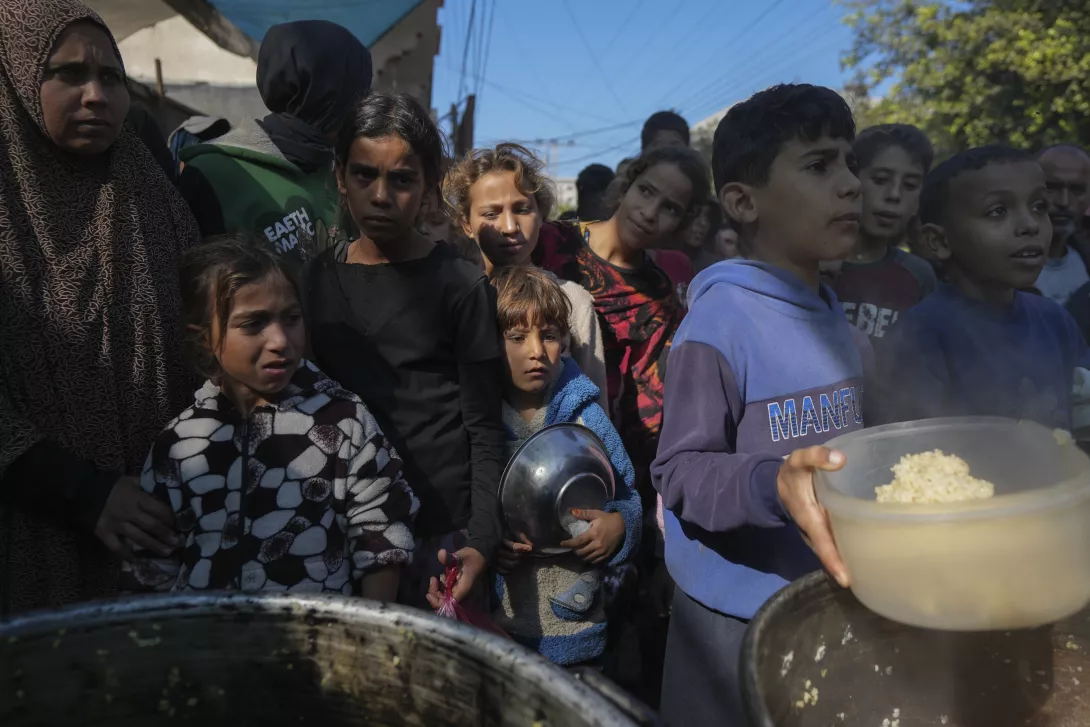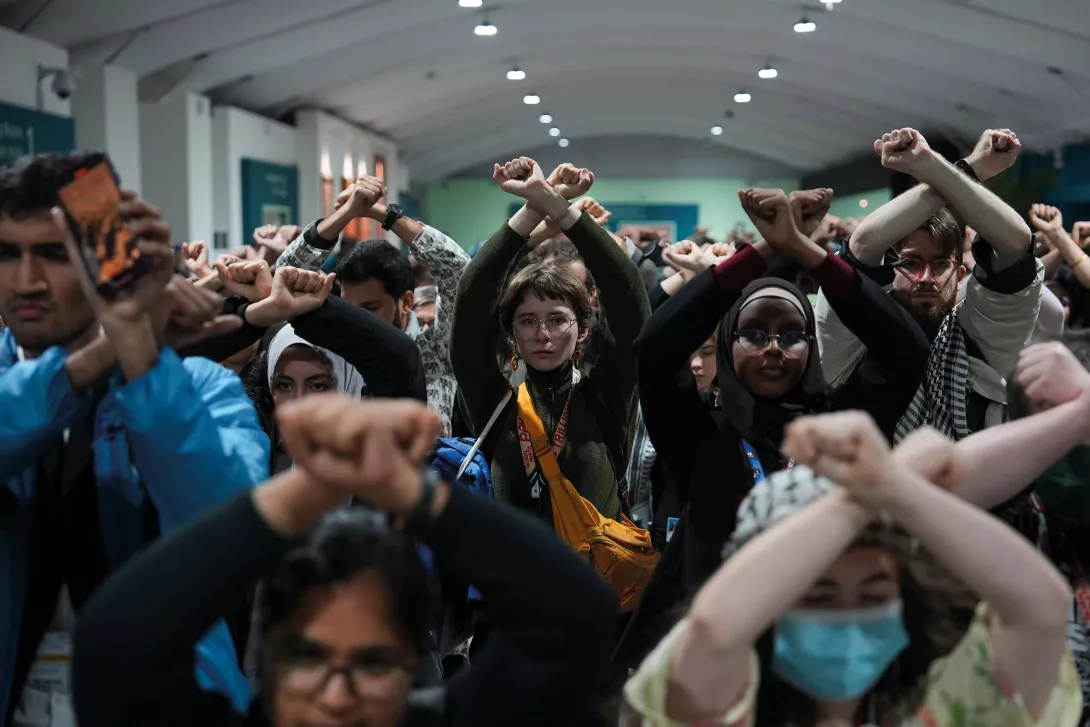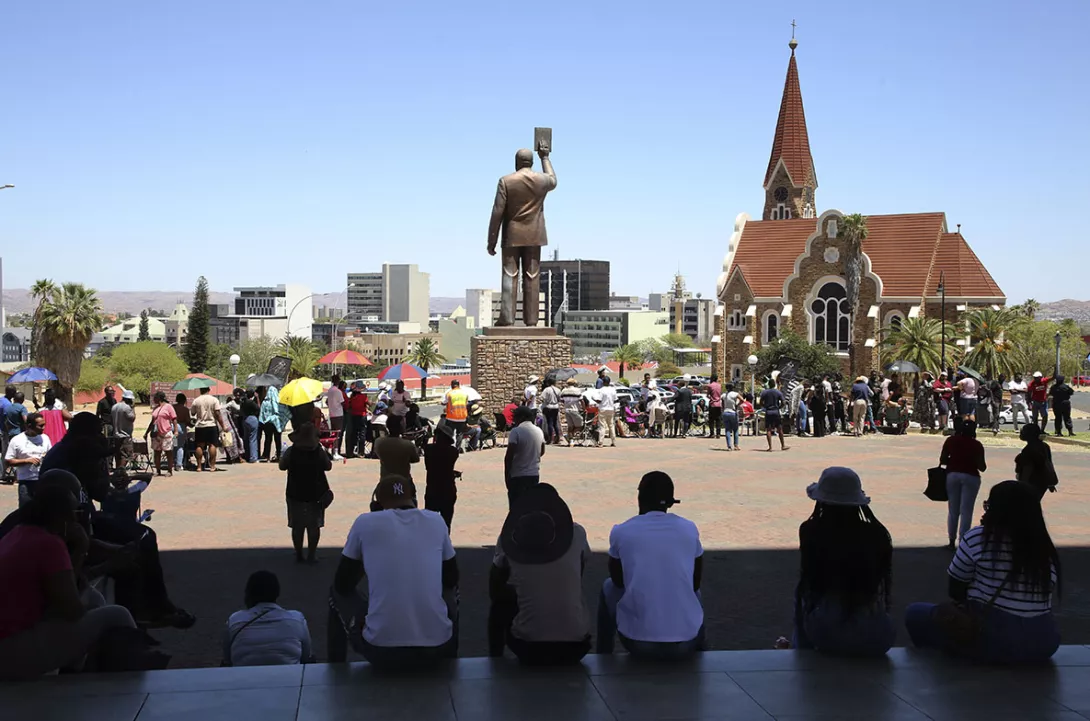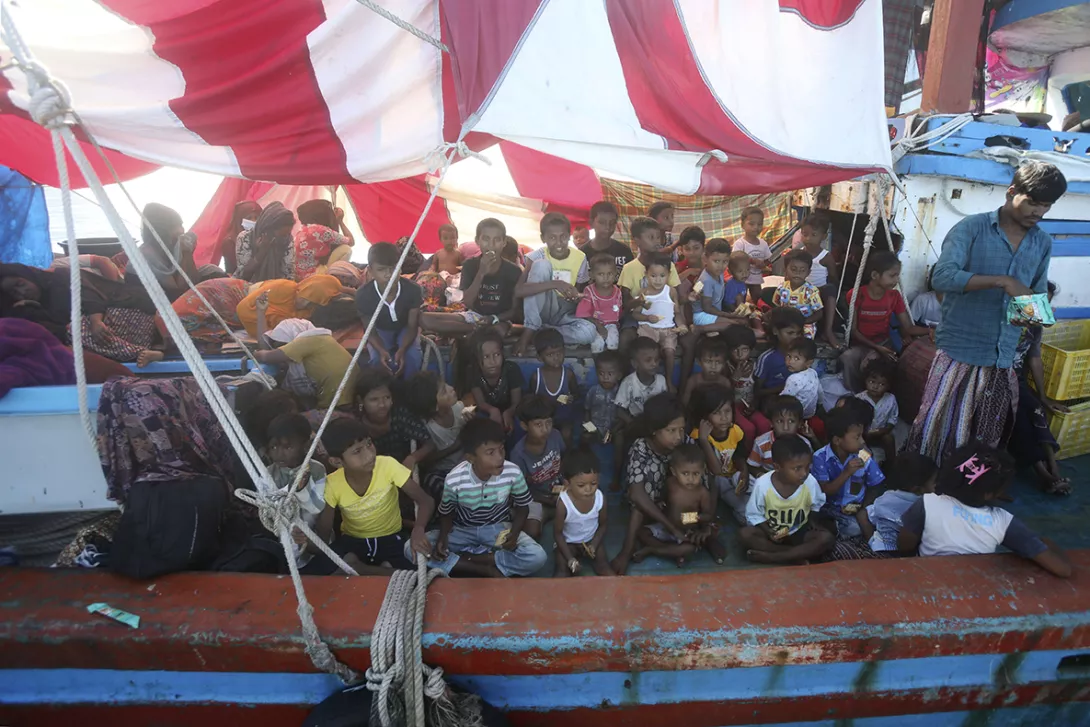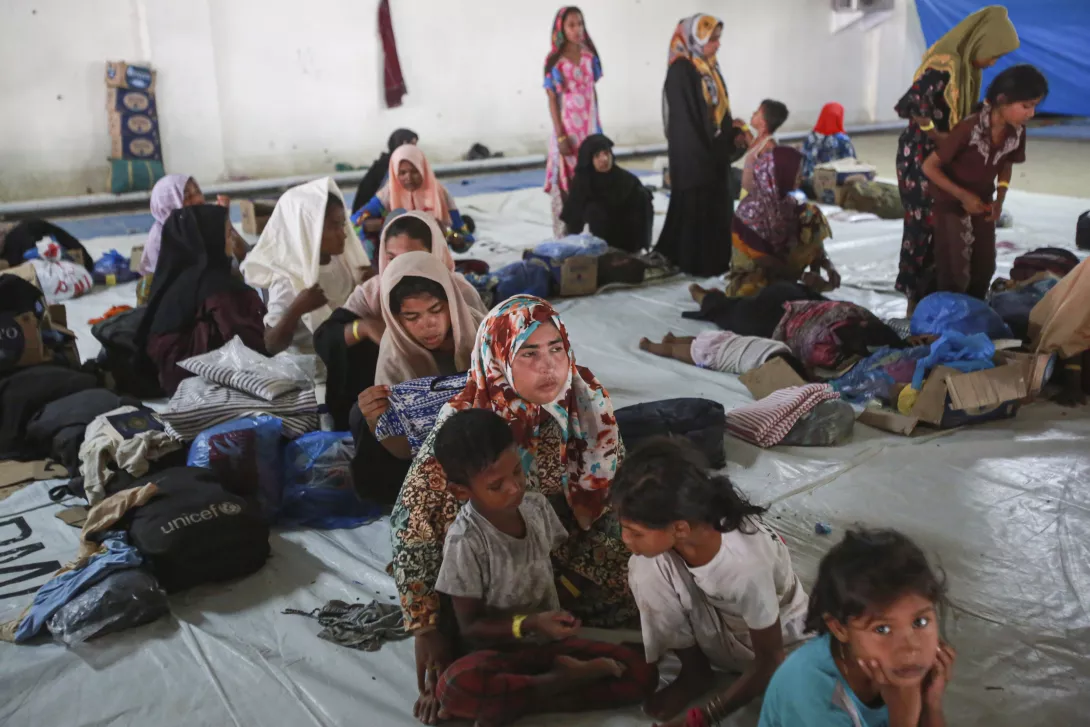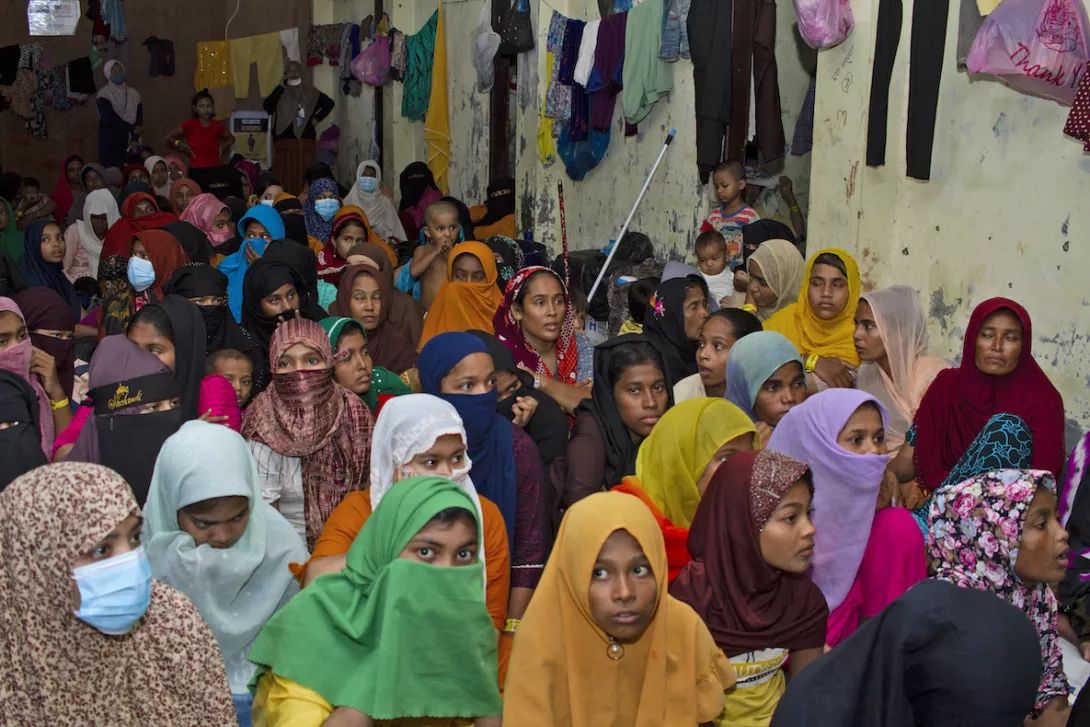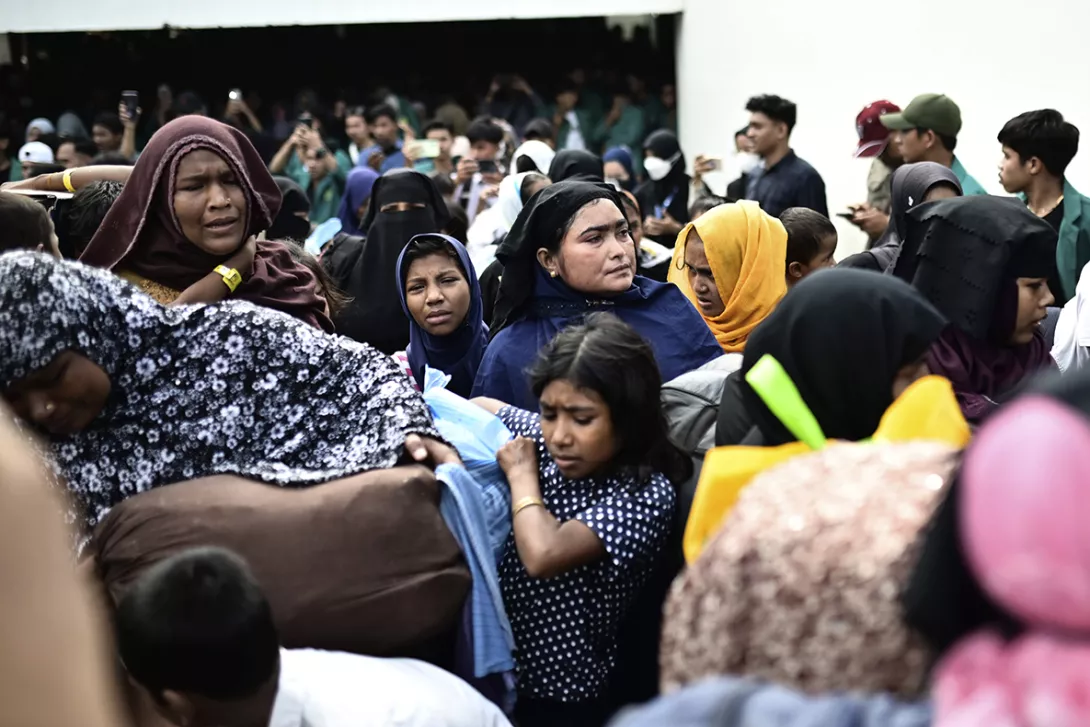
ROHINGYA refugees who have fled violence in Myanmar faced protests in Indonesia today.
Over 1,500 Rohingya who left Myanmar to escape violent attacks by the country’s military, and are now leaving camps in neighbouring Bangladesh in search of better lives, have arrived in Aceh, a province on the northern tip of Sumatra island, since November.
However, they have faced hostility from some fellow Muslims in Aceh.
Around 200 students held a rally today in front of the parliament building in provincial capital Banda Aceh to demand that the government drive the refugees away.
The students claimed that the presence of the Rohingya would bring social and economic upheaval to the community.
They chanted: “Get out, Rohingya!” and criticised the government and United Nations refugee agency the UNHCR for failing to manage the refugee arrivals. Some protesters burned tyres in the street.
Teuku Wariza, one of the protest organisers, said: “We urged the parliament speaker to immediately take a firm action to remove all Rohingya refugees from Aceh.”
The protesters marched on a local community hall where about 135 Rohingya were sheltering and threw out clothes and household items belonging to the refugees, forcing authorities to relocate them.
Earlier this month, President Joko Widodo said that the government suspected a surge in human trafficking to be responsible the increase in Rohingya arrivals.
Today, police in Banda Aceh named two suspected human smugglers from Bangladesh and Myanmar following the arrival of one boat of refugees on December 10.
“This is not an easy issue, this is an issue with enormous challenges,” Foreign Minister Retno Marsudi told reporters.
“The UNHCR has reiterated the commitment to continue to assist the Indonesian government in addressing this situation.”
About 740,000 Rohingya were resettled in Bangladesh after fleeing their homes in Myanmar to escape a brutal counterinsurgency campaign in 2017.
Accusations of mass rape, murder and the burning of entire villages are well documented and international courts are considering whether Myanmar’s authorities committed genocide and other grave human rights abuses.
Efforts to repatriate the Rohingya have failed because of doubts that their safety can be assured.
The Rohingya are largely denied citizenship rights in Buddhist-majority Myanmar and face widespread social discrimination.
